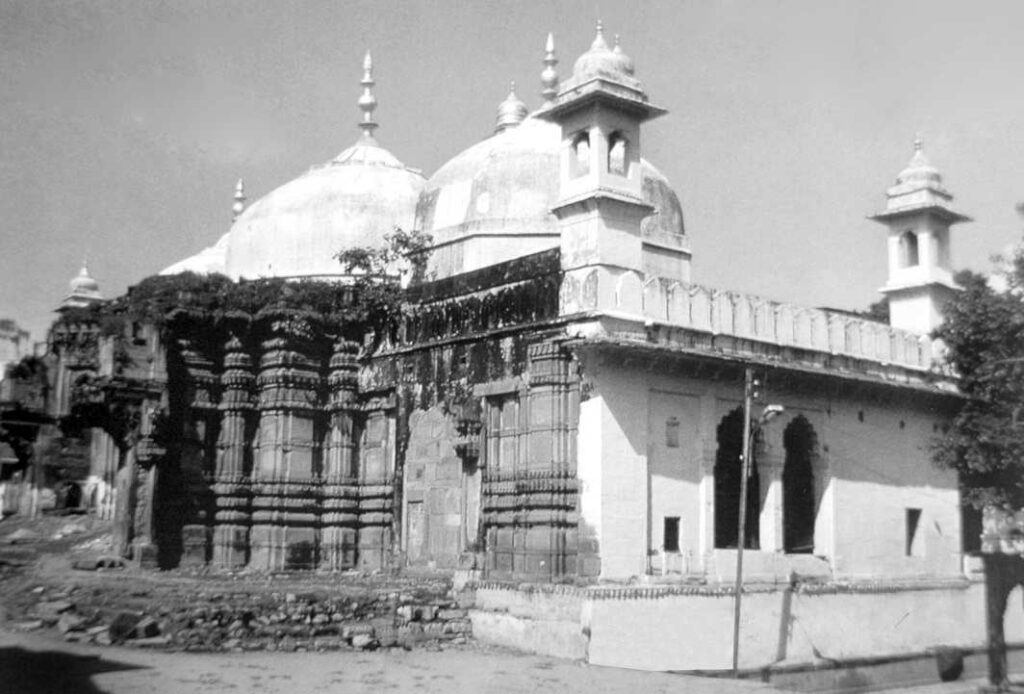Across the holy expanse of India, whispers of the Ayodhya dispute still linger, casting long shadows on two other contested sites: Varanasi and Mathura. Though the Babri Masjid’s demolition in 1992 and the Supreme Court’s subsequent 2019 verdict awarding the land to a Hindu temple marked the conclusion of a tumultuous chapter, it was far from the final word. The Sangh Parivar, a powerful Hindu nationalist umbrella organization, views these three sites – Ayodhya, Kashi (Varanasi), and Mathura – as symbols of “Muslim influence” that must be reclaimed. Each location presents a complex legal and historical maze, mirroring the Ayodhya saga in unsettling ways.
Ayodhya: Ground Zero of Hindutva Politics
For decades, the Babri Masjid stood where many Hindus believe Lord Ram was born. The Sangh Parivar, fuelled by this belief, ignited a sustained campaign in the late 1980s, culminating in the mosque’s tragic demolition. In 2019, the Supreme Court acknowledged the demolition as illegal but awarded the land to the Hindu side, paving the way for a grand Ram temple to be built. Prime Minister Narendra Modi himself will lead the consecration ceremony on January 22, 2024, marking a definitive conclusion for Ayodhya, albeit a deeply polarizing one.
Kashi: Where Faith and Politics Intertwine

In Varanasi, the Gyanvapi Mosque stands adjacent to the revered Kashi Vishwanath Temple. The Sangh Parivar claims the mosque sits atop the ruins of a Hindu temple destroyed by Mughal emperor Aurangzeb, and desires its demolition. Interestingly, Varanasi falls within the Prime Minister’s constituency, and the Kashi Vishwanath Temple complex has undergone a complete transformation. In this charged atmosphere, a local court appointed a commissioner to survey the site in April 2022, leading to the discovery of a structure in the mosque that both sides claim as their own. As of December 2023, the Archaeological Survey of India has submitted its report, but the legal battle continues.
Mathura: Echoes of Ayodhya in Krishna’s Birthplace
Similar to Ayodhya, the Shahi Idgah Mosque in Mathura is believed by Hindus to stand on the birthplace of Lord Krishna, allegedly destroyed by Aurangzeb and repurposed as a mosque. Hindu petitioners have filed legal claims demanding the mosque’s removal. In May 2023, the Allahabad High Court transferred all Krishna Janmabhoomi-Idgah dispute suits to itself, mirroring the early stages of the Ayodhya legal process. While an order for a court-appointed survey was initially approved, the Supreme Court recently stayed it, citing challenges to the case filed by the mosque committee.
The Haunting Parallels: A Troubling Path Forward
The disputes across the three sites reveal unsettling parallels. Each case features historical claims by Hindu petitioners that Muslim structures were built on demolished Hindu temples, echoing the narrative that fueled the Ayodhya conflict. Legal proceedings follow similar trajectories, with court-appointed surveys and archaeological investigations playing key roles. The Sangh Parivar’s involvement in all three disputes further casts a shadow of political motivation.
While the Ayodhya verdict offered a degree of closure, the unresolved cases in Varanasi and Mathura hold the potential to reignite communal tensions. The Supreme Court’s recent stay in the Mathura case suggests potential delays and legal complexities ahead. The Places of Worship (Special Provisions) Act, 1991, intended to prevent further religious disputes by barring changes in the character of existing places of worship post-1947, looms large over these cases.
Also Read: Prime Minister Modi’s Kerala Pilgrimage: Devotion, Politics, and a Touch of History
Navigating a Tangled Web: Finding Lasting Solutions
Moving forward, a nuanced approach is crucial. Respecting historical and religious sensitivities must be balanced with upholding the rule of law and protecting the rights of all communities. Open dialogue, interfaith initiatives, and a commitment to fostering harmony are essential to break the cycle of conflict. The wounds of Ayodhya remain fresh, and the unresolved disputes in Varanasi and Mathura serve as stark reminders of the fragility of religious harmony in India. Only through genuine understanding, mutual respect, and a steadfast commitment to peaceful resolution can these issues be addressed without jeopardizing the nation’s social fabric.